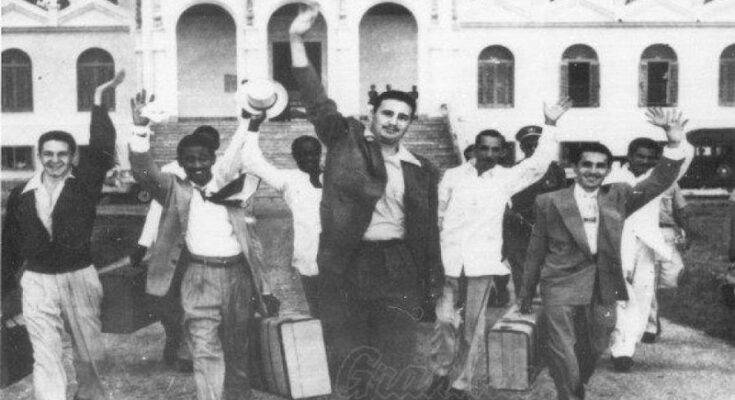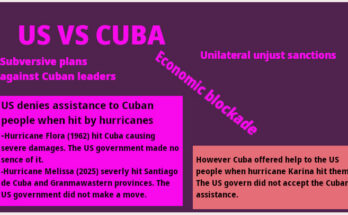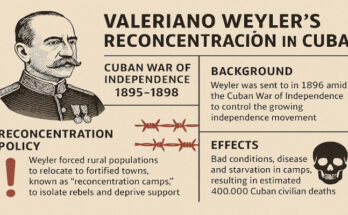A little more than 16 months of captivity had passed, during which Fidel and the other Moncada assailants suffered, without faltering, all kinds of humiliations. For Fidel, prison turned out to be another exercise in patriotism. His letters to family and friends are eloquent: “What matters now is to save the principles: everything is saved if the principles are saved: from the depths of the rottenness will emerge more purified and clean the redeeming ideal,” he wrote.
The Isla de Pinos prison served for him to read a universe of political, historical, novels and other works of his interest, and to reconstruct his historic plea History will absolve me, which the people of Cuba would know immediately. His coThe Moncada assailants are released from prison; they will continue the struggle
A little more than 16 months of captivity had passed, during which he and the other Moncadampanions Haydée and Melba contributed to this work, both of them already out of prison in the women’s prison in Guanajay.
They responded to the call made to them by Fidel: to denounce the horrendous crimes, making known their plea and the revolutionary program contained in the pamphlet. He asked them to have 100,000 copies printed, with popular support, an immense number, but which stimulated their comrades. They managed to get 10,000 leaflets published. According to Fidel’s instructions to his companions, the speech or plea had to be distributed from one end of the island to the other, in four months at the most, in the midst of the greatest difficulties. And so it happened.
That was the engine that detonated the plan to demand the amnesty on the part of the people, already informed of all the truth that the press censorship hid and distorted. Thus was unleashed, not without a few sacrifices, a plan that culminated in the approval of the Amnesty Law for the Moncadistas, demanded from one end of the country to the other, based on propaganda led, at great risk, by the Martian Women and other comrades.
Fidel, in a letter to a friend, wrote from prison: “(…) days before they took me to court: it had been a long time since I had seen fields and horizons open… only eight and a half months, but how much I had to suffer”. That was the moment when he was taken to the Isla de Pinos Court, where he ratified the accusations made by him, as lawyer, defendant and accuser, in the Moncada trial (Case 37), in which he requested several times to “deduct” testimony about the crimes perpetrated by the military. The facts had been denounced in the Santiago de Cuba Court on September 21, 1953.
When he went to the Isla de Pinos Court, Fidel and his comrades had been imprisoned in the Model Prison for eight months. The ratification of their words in Case 37 was to result in the accused military officers also being tried. This was the eighth month of his imprisonment. The fact that he was taken to court went unnoticed?
Compaign for Moacada assailants’ freedom
The campaign in favor of amnesty became uncontainable, after a great part of the people knew about the atrocities committed against the prisoners on July 26 and in the following days, after the assault led by Fidel.
The Pro Amnesty movement for the Moncadistas coincided with an orchestrated plan for the general elections promoted by the de facto regime, an effort in which representatives of the opposition parties were inserted, under the banner of peace. The revolutionary campaign of amnesty for the Moncadistas was generalized. The popular action in favor of the Amnesty Law was impressive all over the country.
The de facto government had to yield: the popular force was tremendous and so it was forced to dictate the Amnesty Law requested by the people in those circumstances. The then young lawyer did not pronounce himself in favor of it, but declared from jail: “I neither ask nor will I ever ask for amnesty”. So he said in Isla de Pinos.
But the Amnesty Law, incredibly for many people, was dictated by Batista’s government. The Moncadistas were included in it.
Thus, on May 15, 1955, Fidel and the other Moncada assailants were released from prison. He would declare: “Our freedom will be a relentless struggle. I will know how to do what is necessary at every moment and not what the enemy wants. The national conscience is reborn, to try to stifle it would bring about an unprecedented catastrophe”.
At that time it was called the “perch law”, some suspicious element that appeared in a legal document such as the Amnesty Law, dictated by the government. This law favored all the defendants involved in the events of July 26. Obviously, it also benefited the military personnel accused of crimes, according to that “legal” perch contained in the law – the date that included July 26, 1953 – as a starting point. Military personnel accused of crimes would also be included in the benefit, in accordance with the aforementioned date.
After six weeks in the streets, starting on May 15, 1955, Fidel Castro would say: “So there is no other solution than that of ’68 and ’95”. And he left for Mexico, where he prepared the Granma expedition. The vast majority of the people had already benefited him. He was the only leader of the opposition in whom he believed and whom he followed. It would be necessary to wait until 1959, after the triumph of the Revolution, after the intense and victorious struggle in the Sierra Maestra and other revolutionary fronts, for many of those military men -some of them managed to escape- to be condemned in trials for war crimes.




